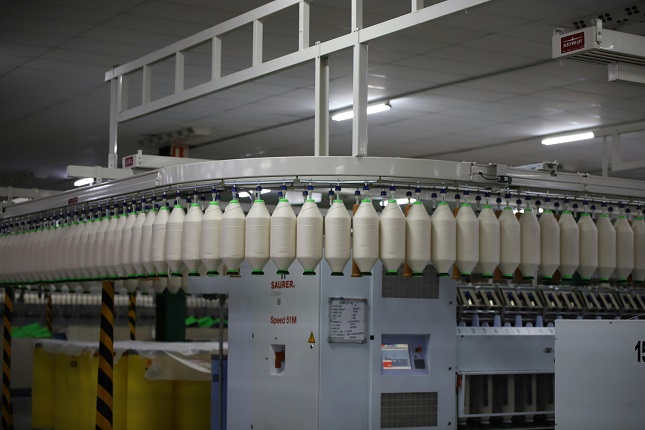One of the best objectives of any manufacturing environment is to minimize downtimes. Inability to use production equipment every minute may result in loss of revenue thereby missing orders and bad relationships with customers. The manufacturers continuously aim at finding a good method of making sure that there is a smooth production with minimal hitches. Enterprise Resource Planning (ERP) systems have become an important instrument in such an attempt to pinpoint, avert and address production floor outages.
ERP systems help centralize production line management by combining different functions like planning of maintenance, managing invoices and in-process tracking, moreover, ERP systems also enable workflow management of production lines. Manufacturing ERP systems are created to meet the complex and fast requirements of factory-based operations and enable managers and workers to react speedily to the disturbances and enable continuous improvement.
Supporting Preventive Maintenance Planning
Preventive maintenance is one of the most available channels through which ERP minimizes downtime on the production floor. ERP systems trace the number of use hours, performance key indicator, and maintenance of production equipment. Using this data, the system itself can maintain maintenance visits without waiting till the breakdown takes place. This is a proactive technique that will preserve equipment in a proper shape and minimize the possibilities of unexpected failure, which may interrupt the production.
Moreover, ERP systems also give notifications and reminders to maintenance teams when their service is near. This gets rid of guesswork and makes it better to co-ordinate among operations and maintenance departments. By having a systematic handling of preventive maintenance enabled by ERP, manufacturers are able to keep their equipment operational at minimum levels and have long-term operational efficiency.
Improving Real-Time Production Monitoring
ERP systems that include shop floor control in their functionality give real time views of equipment status, production detail as well as bottlenecks. This enables the managers to detect cases of emerging trouble early enough and thus act before the problem that starts as a niggle becomes a serious blight. Data coming in real-time, machines, sensors, or other workstations are analyzed and collected in ERP systems to identify any unusual behavior or performance fluctuations.
It allows real-time monitoring of production, which is why ERP allows fast decision-making and prompt intervention. Such responsiveness does not just aid in the lessening of downtimes but also keeps the production floor nimble and responsive to varying circumstances. This data-driven insight is critical in contemporary manufacturing ERP systems to remain productive and have uptime.
Enhancing Inventory Coordination
The unplanned downtimes are mostly as a result of delays in raw materials or shortage of raw materials or parts. The ERP systems help to reduce this challenge by availing the right and current inventory information throughout the supply chain. With low materials the system will provide automatic reorder or a warning to purchasing departments before the materials run out so that they will have the materials when required to carry out their production.
In addition, ERP aids in the optimization of the movement of materials around the facility in order to maintain the adequate incoming of materials in the production lines. Manufacturers can reduce the disruptions that will occur due to non-availability of the materials and maintain the workflow continuity through improved coordination between the procurement, warehouse, and the shop floor departments.
Managing Workforce Scheduling
Human resource constraints can also contribute to production delays. ERP systems facilitate extensive workforce planning through personnel ability and availability to production schedules. In case one of the main operators is sick or shifts should be changed, the system can propose alternatives or swap tasks to prevent downtimes.
Such a planning minimizes the possibility of delays experienced as a result of staffing problems and it guarantees that the production floor gets that labor it requires to efficiently address the demands of the operations. ERP used in manufacturing also ensures that supervisors can rapidly adjust to the changes in the workforce and bring about continuity in the day-to-day operations.
Standardizing Operational Procedures
ERP systems limit asset downtime by imposing common procedures throughout the manufacturing line. When actions occur in the same way every time and follow predetermined procedures, then chances of error and delays due to miscommunication or difference in performance are minimal. Digital schemes, checklists and the workflow processes can be distributed by the ERP system, and workers can follow the stages of production.
The transfer of knowledge to new employees and retention of knowledge is also easily represented as a result of standardization and hence the transfer and learning curve. In situations where all people use the same operational blueprint, production will become less vulnerable to disruption and more predictable.
Enabling Root Cause Analysis
Once downtime is experienced, it is vital to know the reason as to why the occurrence happened. The ERP system captures and catalogs information on every disruption by time, location, equipment and operators. This elaborate record facilitates root cause analysis and assists the manufacturers to identify trends or underlying problems leading to repetitive instances of downtimes.
As soon as the root causes have been determined, it is possible to introduce correctional measures and monitor them using the ERP system. This loop of constant improvements ensures that the manufacturer can learn about their past downtimes and implement precautions to minimize future unavailability and enhance reliability on the production floor.
Conclusion
In the manufacturing sector, downtime is an issue that should be reduced in order to maintain efficiency and produce goods according to the demands of the customers. ERP systems are important to this objective, as they provide preventive-maintenance tools, real time monitoring, inventory coordination, work-force planning and process standardization, real time monitoring, inventory coordination, work-force planning and process standardization, and root cause analysis. The assistance of a manufacturing ERP helps companies to establish a stronger production environment that is more efficient and proactive. ERP systems help operate long term success by ensuring that disruptions are kept at minimum and so is the optimal use of resources.






































